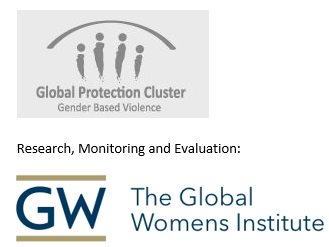- The goal of VAWG coordination is to provide accessible, prompt, confidential and appropriate services to survivors according to a basic set of guiding principles and to put in place mechanisms to prevent VAWG. The challenge of VAWG coordination is to ensure that humanitarian actors working within and across relevant clusters/sectors achieve this goal through multi-sectoral, inter-agency action.
- Ultimately, successful coordination should result in more targeted, responsible and responsive programming. Humanitarian actors must always remember why they are coordinating VAWG interventions and who is benefiting. Coordination processes should not only serve the actors engaged in prevention and response interventions, they should also lead to positive outcomes for the affected populations.
Tools:
Ward, J. 2010. Handbook for Coordinating Gender-based Violence Interventions in Humanitarian Settings, GBV AoR. (commonly referred to as the GBV Coordination Handbook). The Coordination Handbook is a quick reference tool that provides practical guidance on leadership roles, key responsibilities and specific actions to be taken when establishing and maintaining a GBV coordination mechanism in an emergency. The Coordination Handbook and associated training tools are available at http://gbvaor.net/.
IASC. 2005. Guidelines for Gender-based Violence Interventions in Humanitarian Settings: Focusing on Prevention of and Response to Sexual Violence in Emergencies, (commonly referred to as the IASC GBV Guidelines). The IASC GBV Guidelines stress the multi-sectoral approach and provide important directives for GBV coordination in any humanitarian context. The IASC GBV Guidelines and associated training tools to support roll-out of the Guidelines are available at http://gbvaor.net/
IASC. 2006. Guidance Note on Using the Cluster Approach to Strengthen Humanitarian Response. This is the key guidance document for the use of the cluster approach, the agreed division of labour by humanitarian stakeholders. Since December 2011, the cluster approach and humanitarian coordination in general have been undergoing a reform process, also known as the IASC Principals’ Transformative Agenda.
